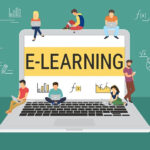Here are the top websites for your academic research:
Academic Search Engines and Libraries
- Google Scholar
Google Scholar – An extensive search engine for scholarly literature, including papers, theses, books, and more from a range of academic publishers and institutions.
- ScienceHuβ
ScienceHuβ – Offers free access to a wide array of research articles and the latest scientific material across various disciplines.
- CORE
CORE is a comprehensive bibliographic database of scholarly literature, offering the world’s largest collection of full-text open access research papers. It serves repositories and journals globally, increasing discoverability and preventing content misuse. CORE supports data providers with tools for metadata validation, content management, and facilitating machine access to open research. Stakeholders benefiting from its services include researchers, the general public, academic institutions, developers, funders, and companies in various sectors.
- Google Books
Google Books – Google Book Search operates in the same way as online search does. Try a Google Books or Google.com search. Google will link to it in your search results if Google finds a book with content that matches your search parameters.
- Microsoft Academy
Microsoft Academic is a free public web search engine for academic publications and literature, developed by Microsoft Research.
- RefSeek
RefSeek is a student and researcher-focused web search engine that strives to make academic knowledge more accessible to everyone. More than five billion documents, including web pages, books, encyclopaedias, magazines, and newspapers, are searched by RefSeek.
RefSeek’s methodology is unique in that it provides students with full subject coverage without the information overload of a general search engine, improving the exposure of academic information and interesting ideas that are typically buried in a confusion of sponsored links and commercial results.
- Educational Resources Information Centre
Educational Resources Information Center is an Internet-based bibliographic and full-text database of education research and information that is comprehensive, easy to use, and searchable.
- Virtual Learning Resources Center
The Virtual LRC is a meta-search engine that incorporates material taken from many of the greatest research portals and university and public library Internet subject guides suggested by teachers and librarians, as well as a dedicated index of over 10,000 web pages maintained by a real human being.
- AcademicInfo
AcademicInfo aims to cover all aspects of education. AcademicInfo also provides existing and aspiring students with a variety of degree and courses for those trying to upgrade their professional credentials as well as those seeking personal development, including accreditation, test preparation, and guidance on individual topic areas. Because the educational spectrum is large and varied, AcademicInfo can work as a conduit to connect you with the greatest educational institutions and programmes available.
- Semantic Scholar
Semantic Scholar is a Free, AI-powered Tool for Navigating the Scientific Literature. It applies artificial intelligence to extract meaning from the scientific literature, allowing scholars to navigate research much more efficiently than a traditional search engine.
Specialised Academic Platforms
- ResearchGate
ResearchGate is a professional network for scientists and researchers. Over 20 million members from all over the world use it to share, discover, and discuss research. Their goal is to connect the scientific community and make research accessible to all.
- IntechOpen
IntechOpen is one of the world’s leading publishers of Open Access books. Content is accessible for free, on all electronic devices. IntechOpen is definitely worth a bookmark.
- ScienceDirect (Elsevier
https://www.sciencedirect.com/ ScienceDirect aids in the discovery of answers to the world’s most important concerns by providing access to the most trusted, high-quality, interdisciplinary research and scholarly literature. ScienceDirect will help you create a solid knowledge foundation, keep on top of your area, and receive in-depth insights into popular subjects as you take your next steps in discovery, whether you’re a teacher, student, librarian, or researcher.
- Scopus (Elsevier)
Scopus is one of the largest abstract and citation databases of peer-reviewed literature: scientific journals, books and conference proceedings. Delivering a comprehensive overview of the world’s research output in the fields of science, technology, medicine, social sciences, and arts and humanities, Scopus features smart tools to track, analyse, and visualise research. (Use this link to search for abstracts on Scopus.)
- WorldWideScience
WorldWideScience.org or OSTI.GOV is a global science gateway accelerating scientific discovery and progress through a multilateral partnership to enable federated searching of national and international scientific databases and portals.
- IEEE Explore
The IEEE Xplore digital library is a powerful resource for the discovery of scientific and technical content published by the IEEE (Institute of Electrical and Electronics Engineers) and its publishing partners. IEEE Xplore provides web access to more than five million full-text documents from some of the world’s most highly-cited publications in electrical engineering, computer science, and electronics.
- BASE
BASE is one of the most comprehensive search engines in the world, with a focus on academic web resources. More than 240 million papers are available through the BASE, which comes from over 8,000 content suppliers. The full texts of around 60% of the indexed documents are available for free (Open Access). Bielefeld University Library manages BASE.
- SpringerLink
SpringerLink provides researchers with access to millions of scientific documents from journals, books, series, protocols, reference works and proceedings.
- JSTOR
JSTOR provides access to more than 12 million academic journal articles, books, and primary sources in 75 disciplines. JSTOR helps you explore a wide range of scholarly content through a powerful research and teaching platform.
- ACADEMIA
Academia is a platform for sharing academic research. Academics have uploaded 22 million papers, and 31 million academics, professionals, and students read papers on Academia every month.
- HINDAWI
HINDAWI is one of the world’s largest fully open-access journal publishers.
- FRONTIERS
Frontiers is a leading Open Access Publisher and Open Science Platform. The journals are led and peer-reviewed by editorial boards of over 100,000 top researchers. Covering more than 900 academic disciplines.
- PubMed Central® (PMC)
PubMed Central® (PMC) is a free full-text archive of biomedical and life sciences journal literature at the U.S. National Institutes of Health’s National Library of Medicine (NIH/NLM)
- IOP SCIENCE
IOPscience is an online service for journal content published by IOP Publishing. IOPscience embraces innovative technologies to make it easier for researchers to access scientific, technical and medical content.
- Science AAAS
Science, also widely referred to as Science Magazine, is the peer-reviewed academic journal of the American Association for the Advancement of Science (AAAS) and one of the world’s top academic journals. A voice for science and scientists everywhere, AAAS fulfils its mission to “advance science and serve society” by communicating the value of science to the public, helping governments formulate science policy, promoting advancements in science education and diversity, and helping scientists develop their careers.
- DOAJ (Directory of Open Access Journals)
DOAJ is a community-curated online directory that indexes and provides access to high-quality, open-access, peer-reviewed journals. All DOAJ services are free of charge including being indexed. All data is freely available.
- Dimensions
Dimensions is an open research information database that offers access to over 106 million publications. It links grants, patents, clinical trials, datasets, and policy papers to provide a comprehensive view of research. The platform encourages serendipitous discoveries through citation networks. It features an easy-to-use interface and a powerful API for complex analyses. The project advocates for the research community to develop and own indicators, providing the data freely for this purpose.
- arXiv
arXiv is a digital open-access platform hosting over two million scholarly articles across various subjects. Founded in 1991 by Paul Ginsparg and currently managed by Cornell Tech, it offers services like article submission, curation, and preservation. The platform operates with an emphasis on openness, collaboration, and scholarship. While not peer-reviewed, submissions undergo moderation for relevance and scholarly value. Funding comes from Cornell University, the Simons Foundation, member institutions, and donors, with governance overseen by various advisory councils.
Academic Research Tools
- Zotero (Your personal research assistant)
Zotero is an easy-to-use and free tool that helps you collect, organise, cite, and share your research. You can use it with any text editor like Word, LibreOffice, and Google Docs to create references and bibliographies quickly. The tool allows you to categorise your items into collections, add keywords to them, and create saved searches that automatically fill in relevant resources as you work. Moreover, you can synchronise your data across devices to keep your notes, files, and bibliographic records up-to-date.
- Mendeley
Mendeley is a free, straightforward tool for gathering, organising, citing, and sharing research. Any text editor, as well as Word, LibreOffice, and Google Docs can use Zotero to generate references and bibliographies immediately. You can organise your things into collections and assign keywords to them. It may also synchronise your data between devices, keeping your notes, files, and bibliographic entries up to date.
Quillbot
QuillBot is an AI-powered tech writing platform with over 20 million monthly active users that offers free online writing and research tools to help students, attorneys, educators, ELLs, and bloggers become more successful, productive, and confident writers.
- Scite (Smart Citations for better research)
Scite is an award-winning platform for discovering and evaluating scientific articles via Smart Citations. Smart Citations allow users to see how a scientific paper has been cited by providing the context of the citation and a classification describing whether it provides supporting or contrasting evidence for the cited claim.
- Web of Science
Web of Science is a website that provides subscription-based access to multiple databases that provide comprehensive citation data for many different academic disciplines.
- Connected Papers
Connected Papers is a unique, visual tool to help researchers and applied scientists find and explore papers relevant to their field of work.
- The Journal Club (An essential tool for organizing your next journal club.)
The Journal Club is a web application and online forum for researchers and enthusiasts to discover, critically discuss, and learn from state-of-the-art (SOTA) research articles. For administering your journal club, you’ll need a user-friendly, intuitive, and powerful web solution. Create public or private journal clubs, set meeting times and locations, invite members to submit papers for debate, and schedule papers for discussion.
- Expontum
Expontum–Helps students, teachers, and researchers quickly find knowledge gaps and identify what research projects have been completed before. Expontum is free, open access, and available to all globally with no paid versions of the site. Automated AI/ML processes scan over 270 million research publications from all academic disciplines.
ADDITIONAL LIST
1. EndNote: https://endnote.com/
A reference management software for storing and organising citations
2. Google Dataset Search: https://datasetsearch.research.google.com/
A tool to find online data available for use.
3. JURN:https://www.jurn.org/
A search engine targets academic articles and books in the arts and humanities.
4. OpenDOAR: http://v2.sherpa.ac.uk/opendoar/
A directory of academic open access repositories.
5. Project MUSE: https://muse.jhu.edu/
Access to scholarly journals and books in the humanities and social sciences
6. Researcher: https://www.researcher-app.com/
An app for discovering and staying updated with research papers.
7. SSRN (Social Science Research Network): https://www.ssrn.com/index.cfm/en/
A repository for social science research.
8.Publons: https://publons.com/
A platform for tracking publications, citation metrics, and peer reviews
9. ORCID: https://orcid.org/
Provides a persistent digital identifier for researchers.
10. BioMed Central: https://www.biomedcentral.com/
An STM publisher of peer-reviewed open access journals
11. CiteULike:http://www.citeulike.org/
A service for storing, organising, and sharing scholarly papers.
12. ArXiv:https://arxiv.org/
An archive for scholarly articles in various scientific fields.
13. https://www.altmetric.com/ –
These resources are crucial for academic researchers in various fields. If you have any suggestions or additional resources, please share with us at thriveopportunities@gmail.com. Good luck in your academic endeavors!







